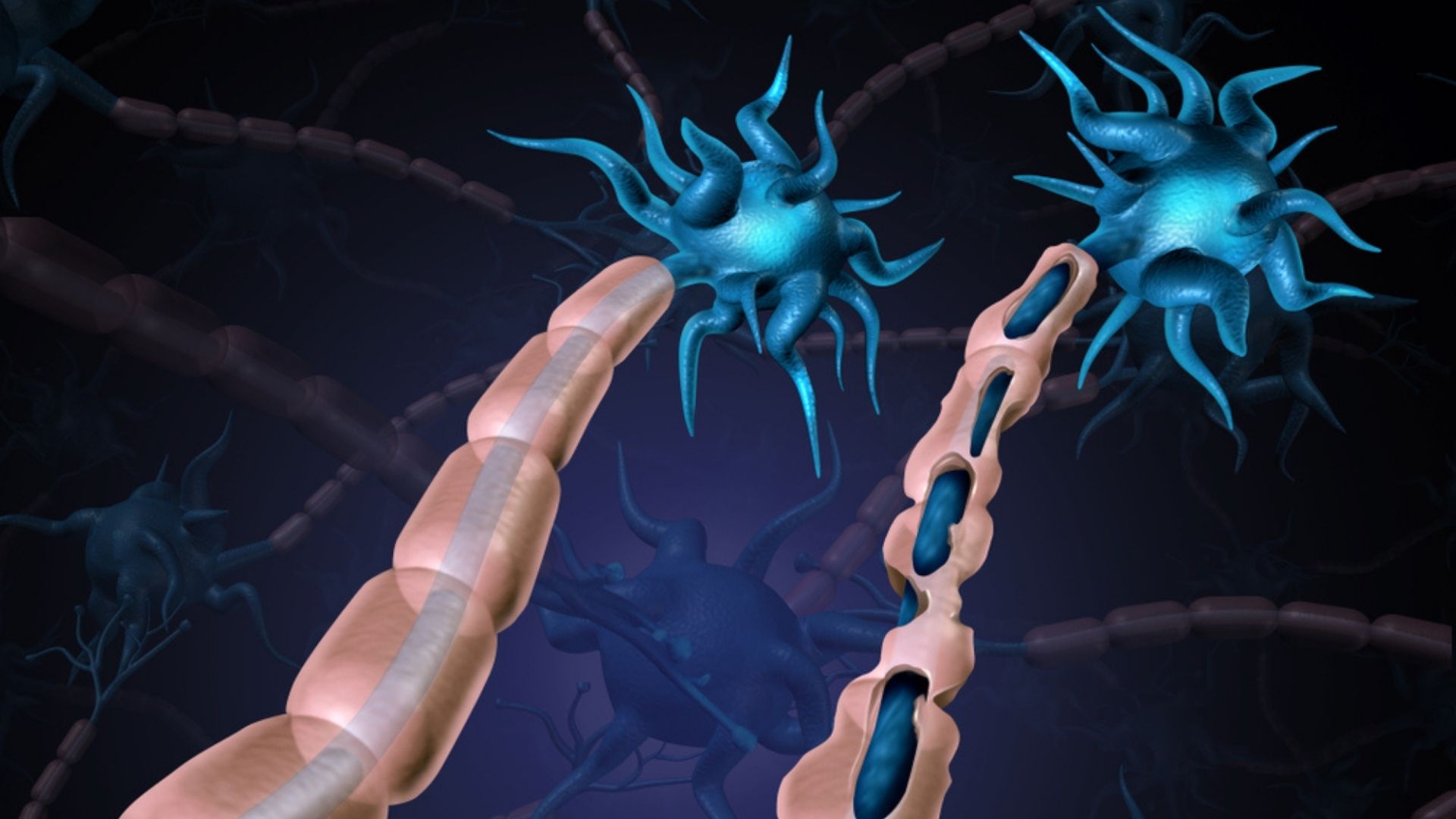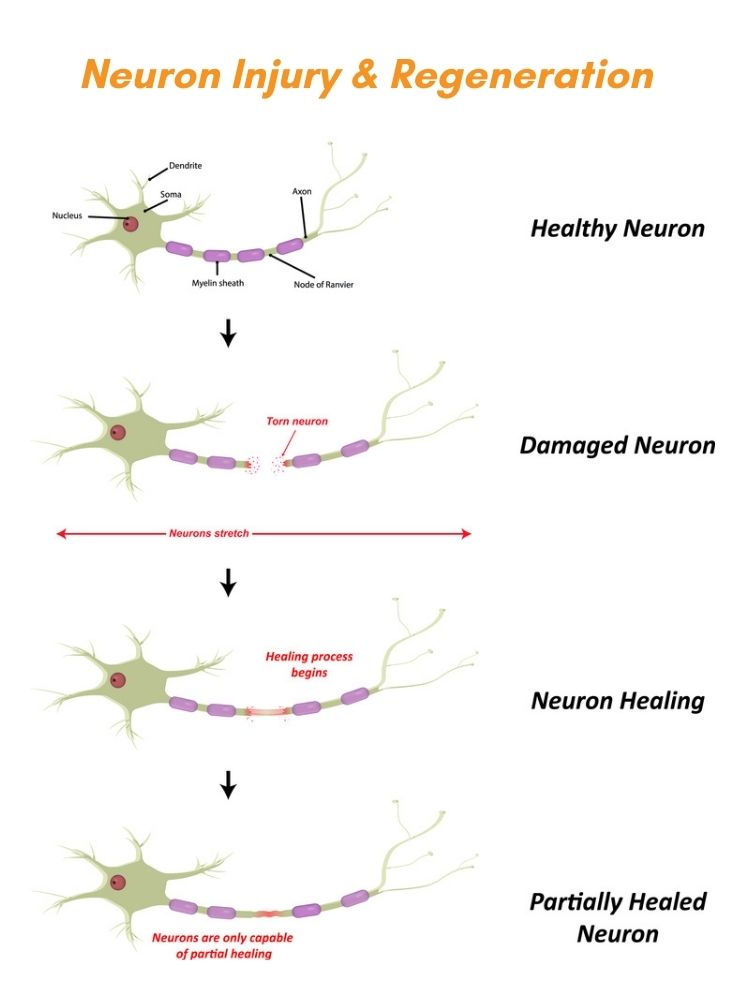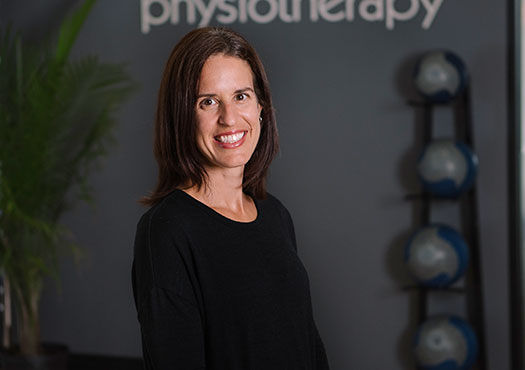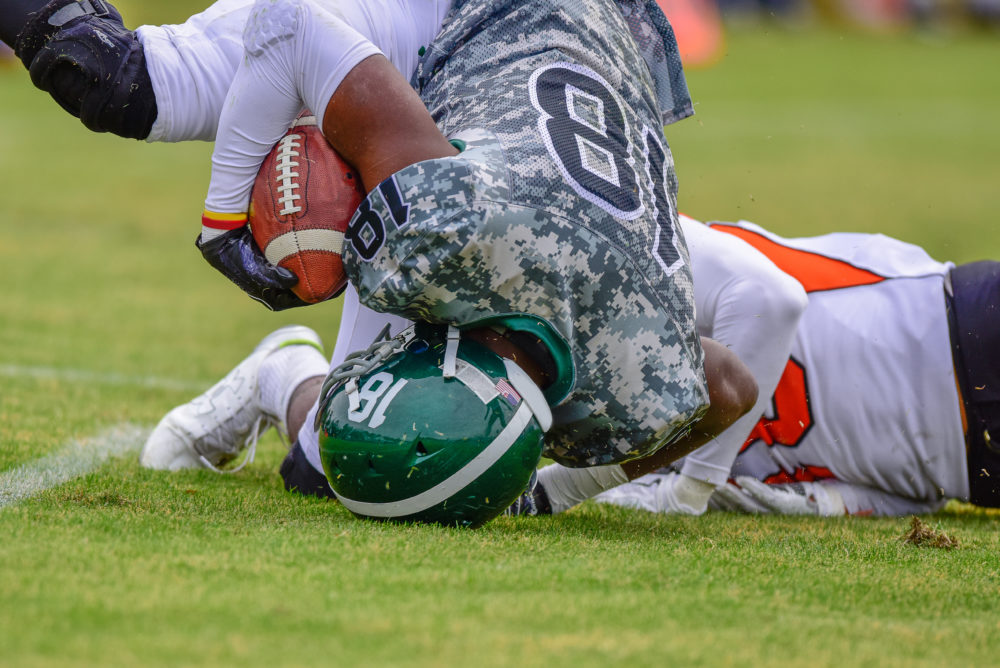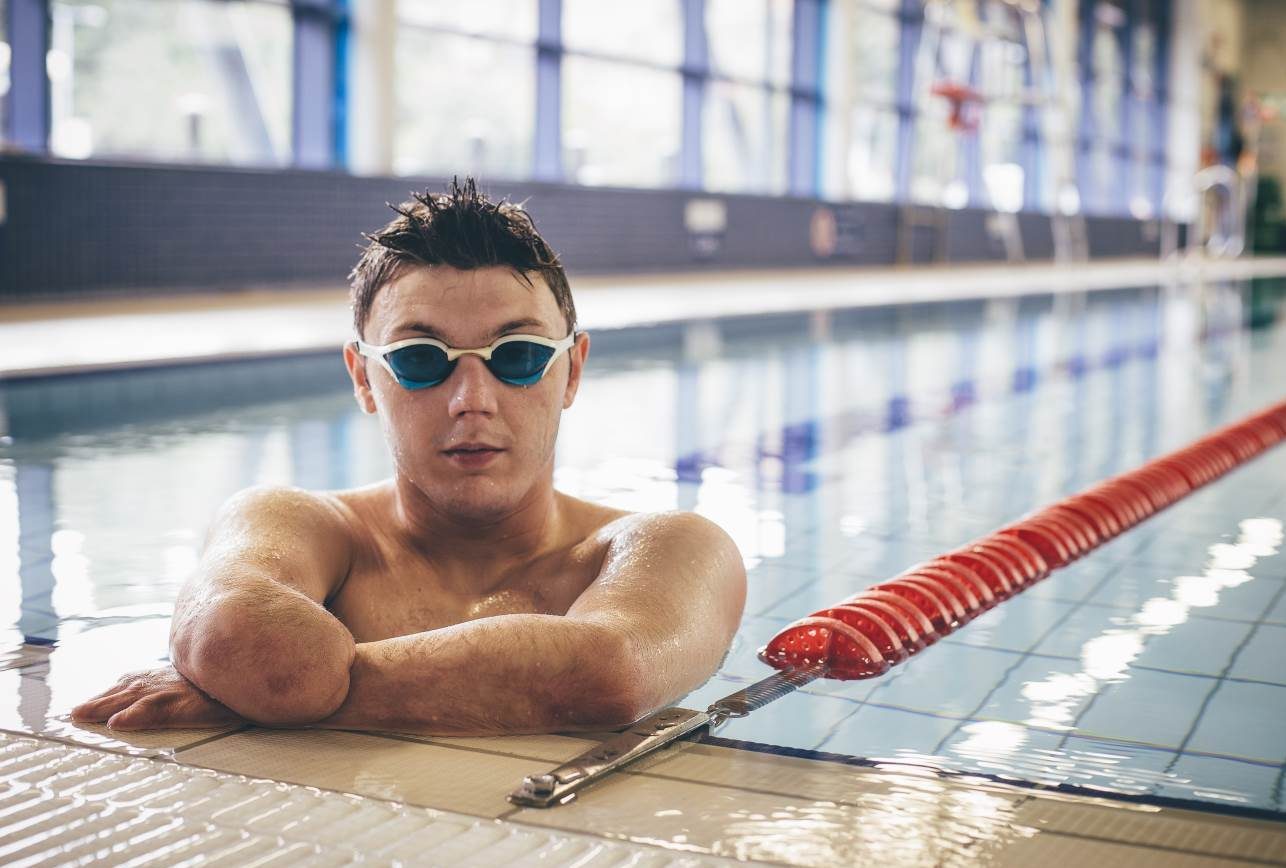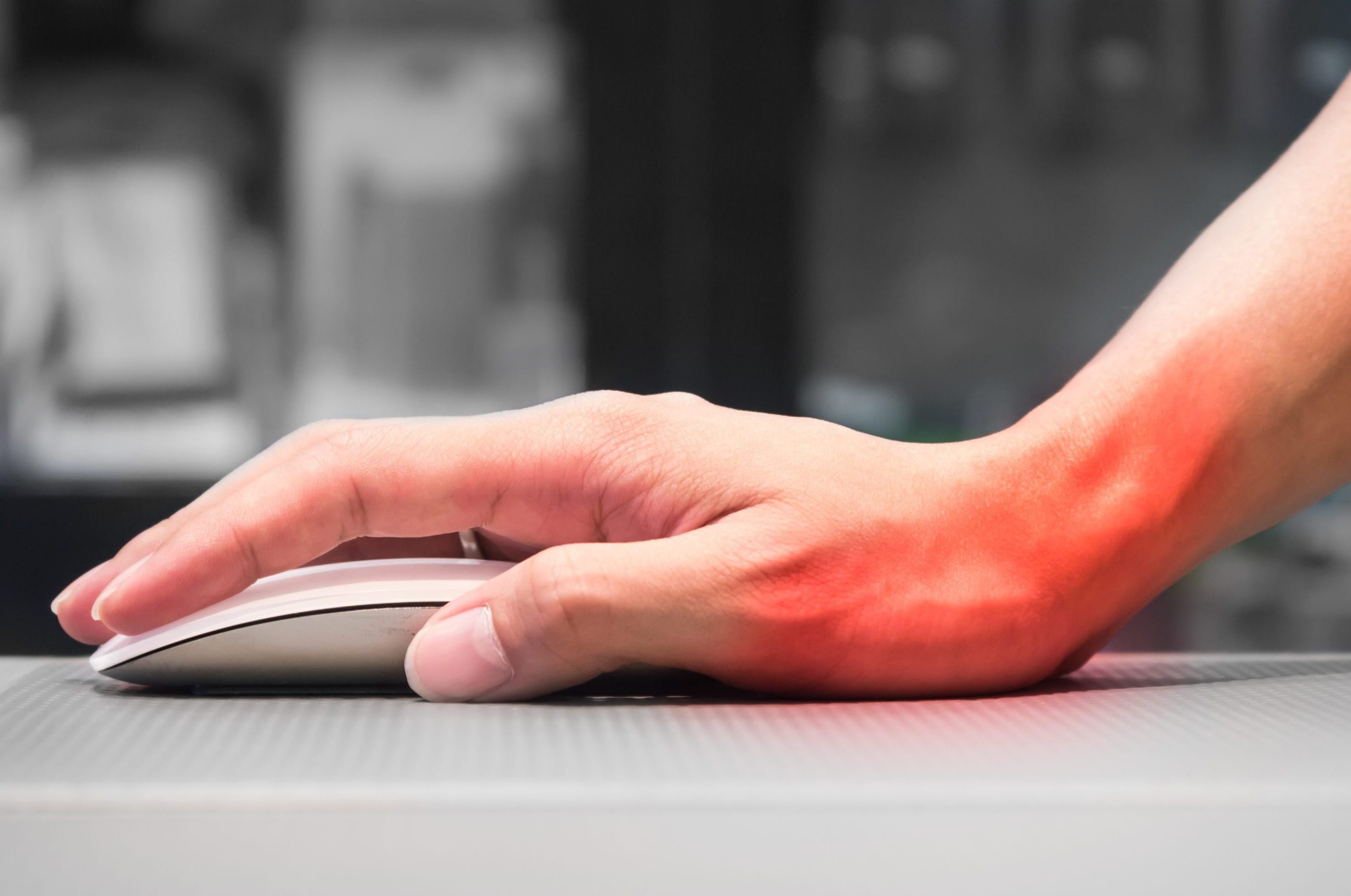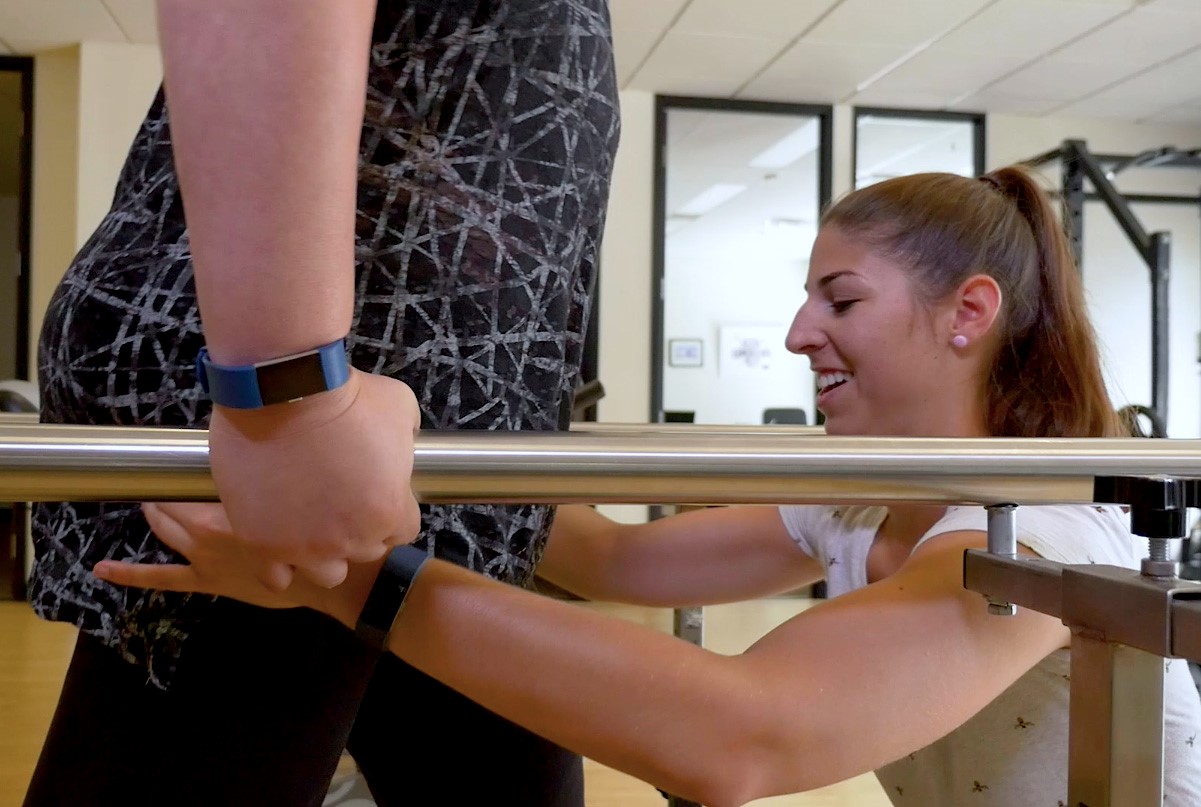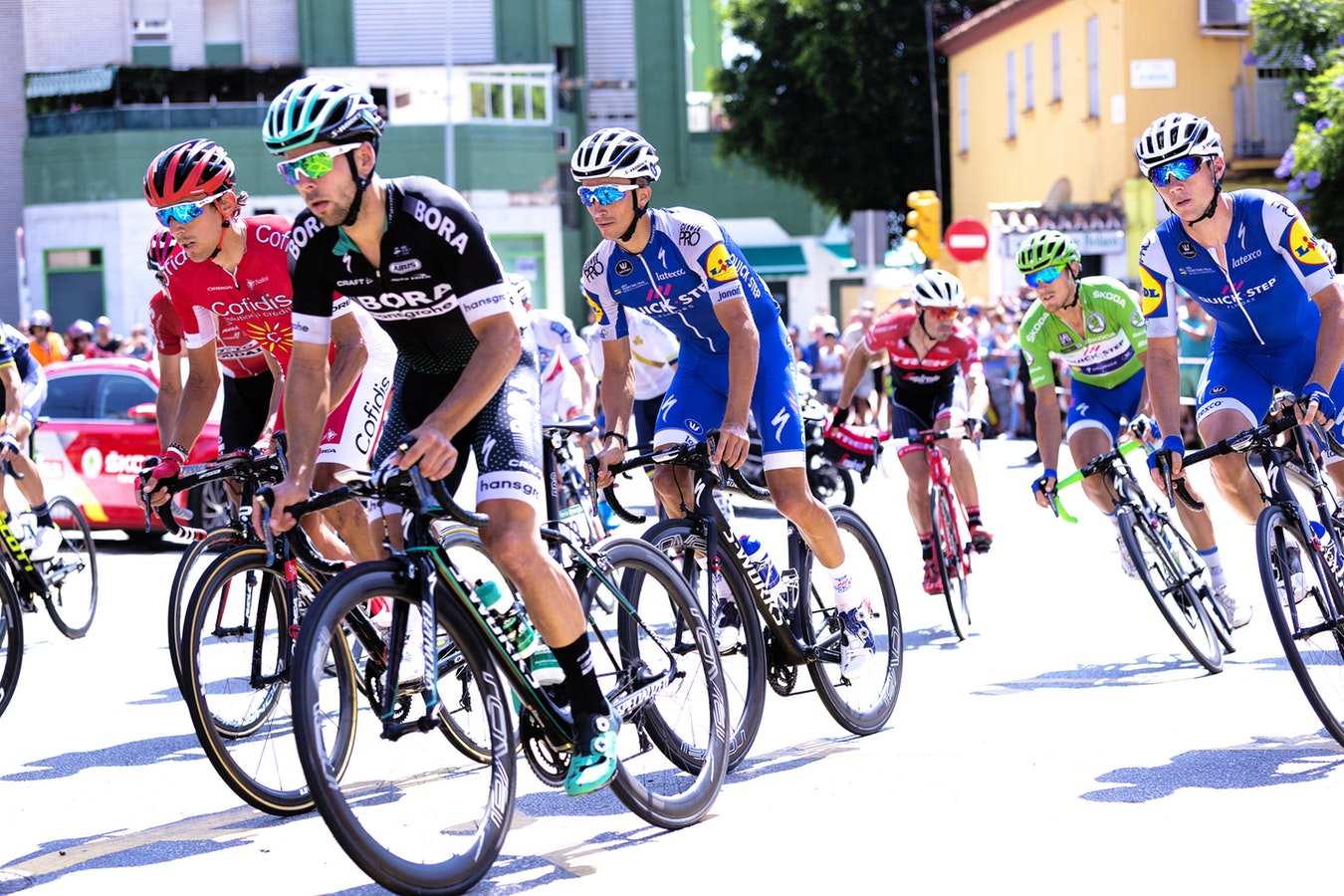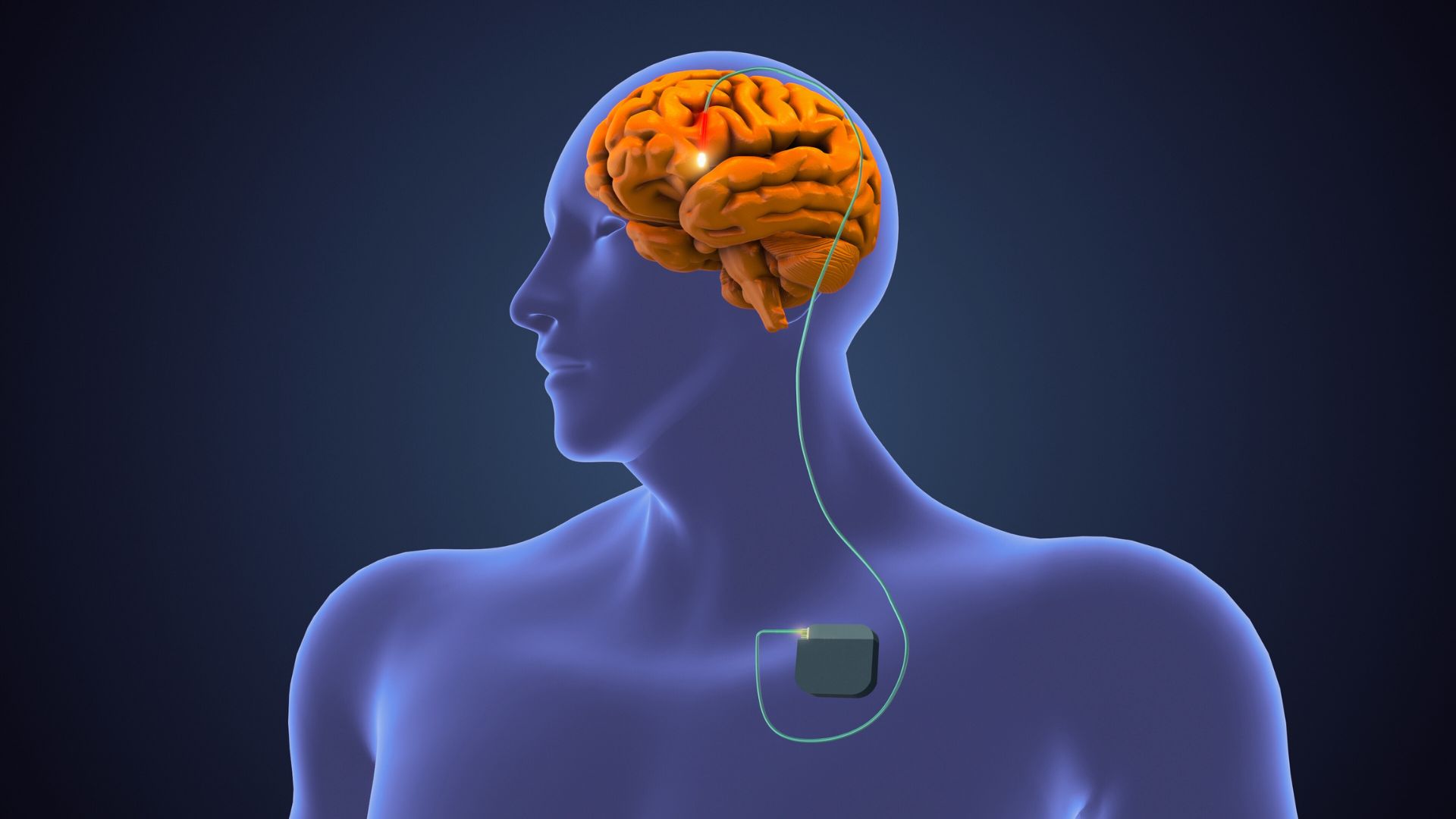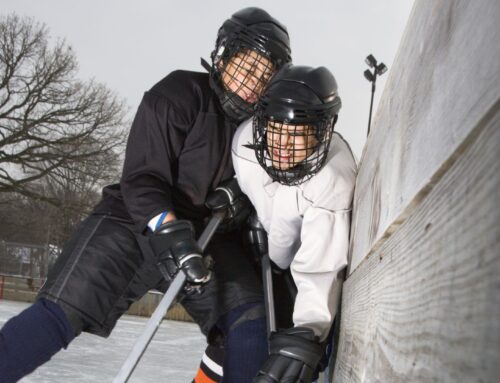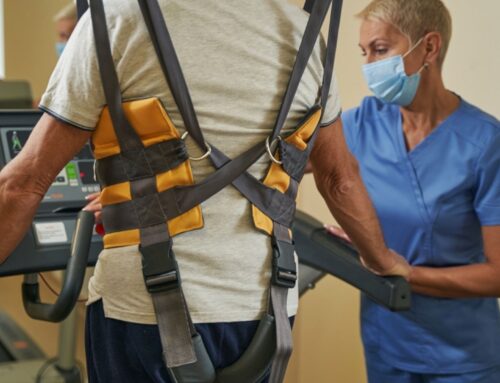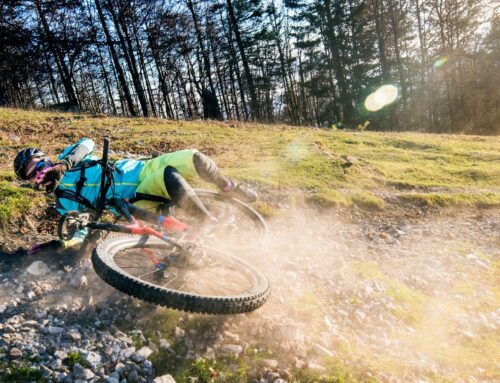The peripheral nervous system is a network of motor and sensory nerves that connect the brain and spinal cord to the rest of the body. The system is the pathway telling your muscles to move. It also returns information about touch, temperature and pressure to the spinal cord and brain. Damage to the peripheral nerves can result in a host of symptoms, including numbness, cramps or loss of movement. In this article we will look at the different classifications of this type of injury as well as peripheral nerve injury treatment.
Causes of Peripheral Nerve Injury
Damage to the peripheral nerve system can result from:
- Trauma from motor vehicle accidents, falls, sports or other accidents can stretch, compress, crush or cut nerves
- Medical conditions like diabetes, Guillain-Barre Syndrome, chemotherapy can all affect the nerve’s ability to transmit signals resulting in neuropathy
- Autoimmune diseases such as lupus, Sjogren’s Syndrome, and rheumatoid arthritis that attack the body’s own cells including nerve cells
Injury can also occur due to chronic nerve entrapment. Nerve entrapment can also have similar signs as peripheral nerve injury. These conditions include carpal tunnel syndrome, thoracic outlet syndrome and sciatica.
Classification of Peripheral Nerve Injury
These injuries are often classified based on the Sunderland Classification System:
- First degree: A reversible local conduction block at the site of the injury. This injury does not require surgical intervention and usually will recover within a matter of hours to a few weeks.
- Second degree: There is a loss of continuity of the axons (wires that transmit the signals of the nervous system) within the nerve. In this type of injury, surgical intervention is usually not required.
- Third degree: There is damage to the axons and their supporting structures within the nerve. In this case, recovery is difficult to predict. Surgery may include cleaning of the nerve (neurolysis) or a more extensive repair with grafting.
- Fourth degree: In this case, there is damage to the axons and the surrounding tissues sufficient to create scarring that prevents nerve regeneration. Electrical testing performed during surgery confirms that no electrical energy can be passed along the neural pathways in this injured nerve. Surgical intervention with nerve grafting is necessary to repair the injury.
- Fifth degree: These injuries are usually found in laceration or severe stretch injuries. The nerve is divided into two. The only way to repair a fifth-degree injury is through surgery.[i]
Symptoms of Peripheral Nerve Injury
Symptoms are related to the types of nerves affected (motor versus sensory) as well as the extent and type of damage. Symptoms include:
- Numbness, tingling (pins and needles), burning
- Stabbing or shooting pain
- Sensitivity to touch
- Coldness in the area
- Decreased or total loss of movement
- Balance difficulties or falls
- Twitching or muscle cramps[ii]
Peripheral Nerve Injury Treatment
Depending on the extent of the peripheral nerve injury treatment can range from surgical repair to conservative methods such as physiotherapy. With surgery the damaged part of the nerve is removed, and the surgeon attempts to reconnect the healthy nerve ends (nerve repair); or in some cases a nerve from another part of the body will be implanted (nerve graft).[iii]
Many peripheral nerve injuries are treated with physiotherapy. Physiotherapy management is also prescribed after surgical management for this condition. Management begins with a detailed history and assessment on how the injury is affecting the client. Physiotherapy treatment will then address:
- Pain management – Acupuncture, TENS, massage can help alleviate the pain associated with these injuries
- Muscle weakness – Appropriate and graded muscle strengthening exercises are incorporated dependent on the level, timing and nature of injury. This may include isometric, electrical stimulation, active assisted or supported slings to help with the strengthening process
- Splinting/Bracing – Use of a splint or brace may be necessary to help avoid over stretching or contractures while supporting the joint
- Sensory retraining – Techniques are used to stimulate the different sensory systems
- Proprioception exercises – Using exercise and various aids to promote joint sense and balance in the limbs
It is vital that therapists are knowledgeable in the physiology of nerve regeneration. At Propel Physiotherapy, our physiotherapists are experienced and trained in the treatment of peripheral nerve injuries. They will work with you to develop a comprehensive treatment program to meet your needs and goals, and to help maximize your function.
References
[i] Peripheral Nerve Injury, Conditions and Diseases, Johns Hopkins Medicine
[ii] Hussain G, Wang J, Rasul A, et al. Current Status of Therapeutic Approaches against Peripheral Nerve Injuries: A Detailed Story from Injury to Recovery. Int J Biol Sci. 2020;16(1):116-134. Published 2020 Jan 1. doi:10.7150/ijbs.35653
[iii] Bhandari PS. Management of peripheral nerve injury. J Clin Orthop Trauma. 2019;10(5):862-866. doi:10.1016/j.jcot.2019.08.003
Written by

